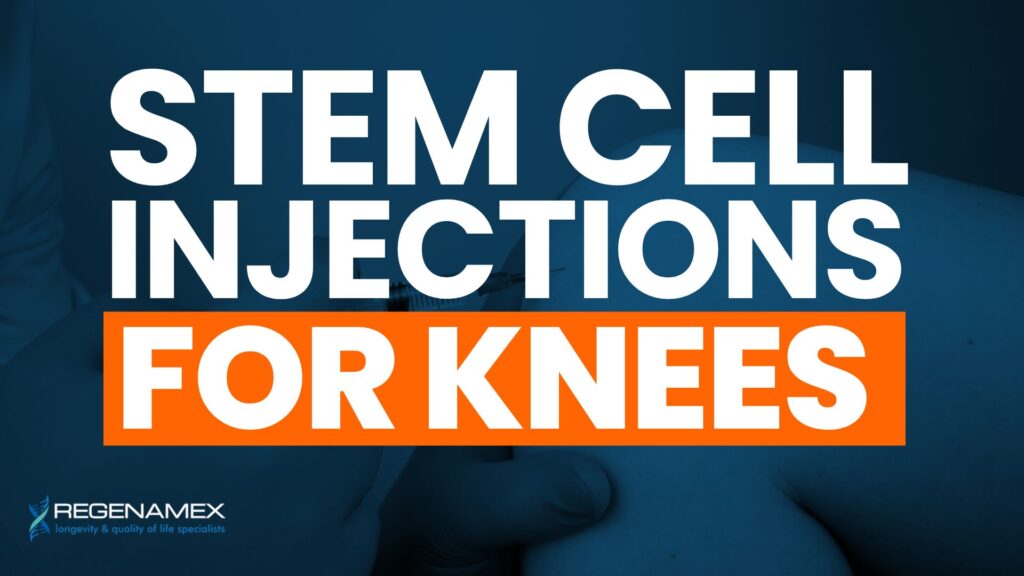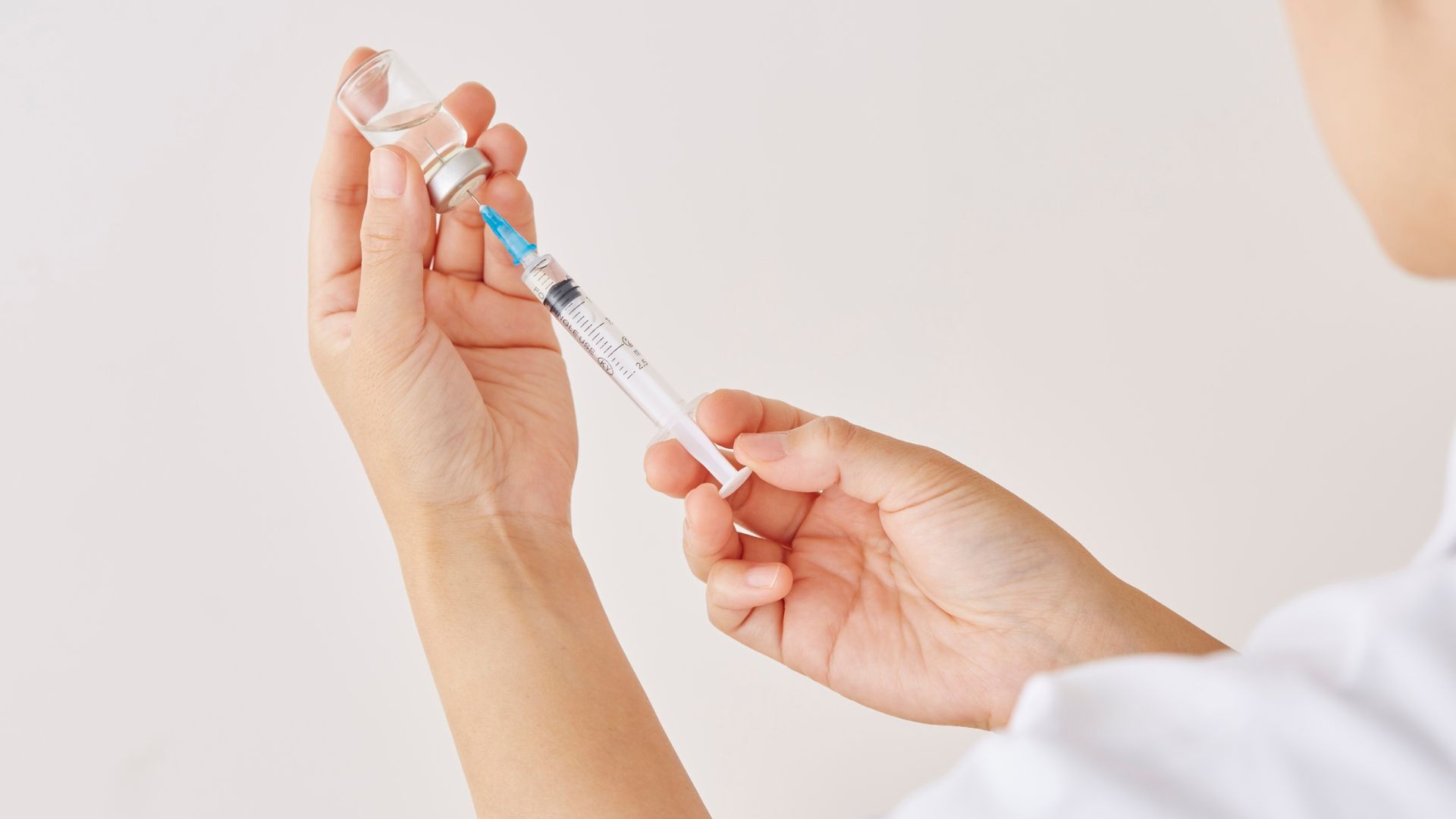
Ideal Candidates for Knee Stem Cell Injections: Who Can Benefit Most?
Stem cell injections for knees are especially beneficial for individuals experiencing mobility issues, chronic joint pain, or inflammation due to injury or age-related degeneration. Whether caused by repetitive motion, traumatic injury, or long-term wear and tear, many knee conditions that were once considered surgical cases are now being effectively managed with regenerative medicine. Among the most responsive conditions are:
Osteoarthritis (mild to severe)
Ligament damage, such as ACL or MCL strains
Meniscal tears or degeneration
Cartilage breakdown and joint erosion
Chronic patellofemoral pain syndrome
Post-surgical stiffness and scar tissue
This treatment is particularly suitable for adults aged 30 to 75 who are seeking to avoid knee replacement surgery, are unresponsive to corticosteroid injections or physical therapy, or are simply looking for a minimally invasive solution with fewer risks. Regenamex’s patient evaluation process includes reviewing imaging scans, detailed medical history, and individual goals to ensure personalized and medically appropriate care.
What Kind of Results Can Patients Expect from Stem Cell Injections for Knees?

Patients undergoing stem cell injections for knees often begin to notice improvements within just a few weeks following the procedure, though the full spectrum of regenerative effects continues to build gradually over several months. As the MSCs establish themselves in the damaged joint environment, they actively reduce inflammatory markers, stimulate cartilage and ligament regeneration, and restore the balance of joint fluid, leading to better motion and less pain. Many patients experience a noticeable decrease in stiffness, greater flexibility when walking or exercising, and improved ability to squat, kneel, or climb stairs without discomfort. By the three-month mark, improvements typically become more pronounced, with maximum benefits emerging between three to six months. Because Wharton’s jelly MSCs continue to act at the cellular level long after the injection, many patients report sustained relief for a year or longer, especially when combined with movement-based rehabilitation and lifestyle changes.
Why Wharton’s Jelly MSCs Are the Gold Standard in Knee Regeneration

Wharton’s jelly-derived mesenchymal stem cells have become the gold standard in regenerative medicine due to their superior potency, safety, and regenerative performance. Unlike adult-derived cells harvested from fat or bone marrow—which require painful extraction procedures and may carry age-related limitations—Wharton’s jelly MSCs are collected non-invasively from donated umbilical cords after full-term, healthy births. These cells are biologically younger, more robust, and packed with powerful growth factors that accelerate healing, reduce inflammation, and promote healthy tissue regeneration.
Key benefits include:
No need for anesthesia or surgical cell extraction
Higher cell viability and regenerative output
Ability to differentiate into cartilage, tendon, and ligament cells
Strong anti-inflammatory and immune-modulating properties
At Regenamex, we only use Wharton’s jelly MSCs for our knee treatments—never fat or bone marrow cells—to ensure the most effective and comfortable experience for our patients.
The Regenamex Procedure: How Stem Cell Injections for Knees Are Delivered

At Regenamex, the entire treatment process is patient-centered, beginning with a comprehensive consultation and continuing through follow-up care. Our stem cell injections for knees are administered by experienced regenerative medicine physicians in a licensed medical facility, ensuring optimal outcomes and clinical safety.
Treatment Overview:
Cell Dosage: 1 to 5 million MSCs per kilogram of body weight
Delivery Method: Intra-articular injection directly into the knee joint; IV infusion may be added for systemic support
Treatment Timeline: Typically involves 1 to 3 sessions over 2 to 4 days
During the injection, local anesthesia may be used to reduce discomfort, and the procedure itself is minimally invasive. After administration, patients are advised to rest and avoid anti-inflammatory medications for a few weeks, as these can interfere with the therapeutic actions of the stem cells. Follow-up includes personalized rehabilitation guidelines, light activity plans, and ongoing communication with the Regenamex team to track progress and fine-tune recovery protocols.
Choosing Regenamex for Advanced Knee Stem Cell Therapy
Regenamex has earned international recognition for its commitment to ethical, evidence-based regenerative care. As a fully licensed regenerative medicine clinic located in Mexico, Regenamex offers world-class stem cell treatments at a fraction of the cost compared to clinics in the United States or Europe—without compromising on safety, quality, or results.
Why patients trust Regenamex for knee stem cell injections:
Licensed regenerative facility following strict medical standards
Exclusive use of Wharton’s jelly MSCs—no fat or bone marrow sources
All-inclusive pricing from $2,500 to $12,000 based on case complexity
Concierge-style support for lodging, airport transfers, and travel logistics
Bilingual staff and personalized treatment plans tailored to your condition
Learn more about how we help patients from around the world at Stem Cell Therapy Mexico, or get started with our Patient Intake Form. For deeper scientific insight, read this PubMed article on MSCs for joint regeneration or check the Mayo Clinic resource on knee arthritis treatment.
Frequently Asked Questions About Stem Cell Injections for Knees
Stem cell injections for knees involve placing regenerative mesenchymal stem cells (MSCs) directly into damaged or inflamed knee joints. These cells, particularly those derived from Wharton’s jelly, are equipped with powerful growth factors and anti-inflammatory signals. Once inside the knee, they release bioactive molecules that reduce swelling, promote tissue repair, restore synovial fluid balance, and support the natural healing of cartilage, ligaments, and tendons. Over time, this results in improved joint function, reduced pain, and increased mobility without the need for invasive surgery.
Candidates for stem cell injections for knees are typically individuals dealing with chronic pain, stiffness, or reduced mobility due to conditions like osteoarthritis, ligament tears, meniscus injuries, or cartilage degeneration. This therapy is especially appealing to patients who want to avoid knee replacement surgery or who haven’t responded well to physical therapy or corticosteroid injections. People between the ages of 30 and 75 who are in generally good health but suffer from orthopedic degeneration are often good candidates, pending review of their medical imaging and overall condition.
Most patients begin to feel subtle changes within three to six weeks following the procedure. These early effects often include a reduction in joint stiffness and a decrease in daily pain levels. However, the most transformative results typically develop gradually over a period of three to six months as the stem cells continue working at the cellular level to regenerate tissues and improve the joint environment. Unlike cortisone shots, which offer short-term relief, stem cell therapy aims to provide sustainable healing and long-term improvement.
While stem cell therapy is considered safe when performed in a licensed medical facility using certified MSCs, minor side effects such as temporary swelling, mild discomfort, or localized soreness at the injection site can occur. Serious complications are rare, especially when using Wharton’s jelly MSCs due to their low immunogenic profile. At Regenamex, every treatment is conducted under strict safety protocols by board-certified professionals, minimizing risk and maximizing therapeutic benefit.
Post-treatment recovery is relatively simple and focuses on supporting the body’s healing process. Patients are encouraged to avoid strenuous activity and anti-inflammatory medications for a few weeks, as these could interfere with stem cell activity. Light movement and gentle physical therapy are often introduced to help regain flexibility and promote circulation. Regenamex provides a tailored recovery plan for each patient, including dietary advice and activity guidelines to ensure optimal results.
Many individuals exploring alternatives to total knee replacement find regenerative therapy to be a compelling option. By targeting the root causes of joint pain—namely tissue degeneration, inflammation, and poor lubrication—stem cell injections for knees have helped patients regain mobility and reduce symptoms significantly. For some, this improvement has allowed them to postpone or completely avoid surgery. Each case is unique, and the degree of benefit depends on the extent of damage and how early intervention occurs.

